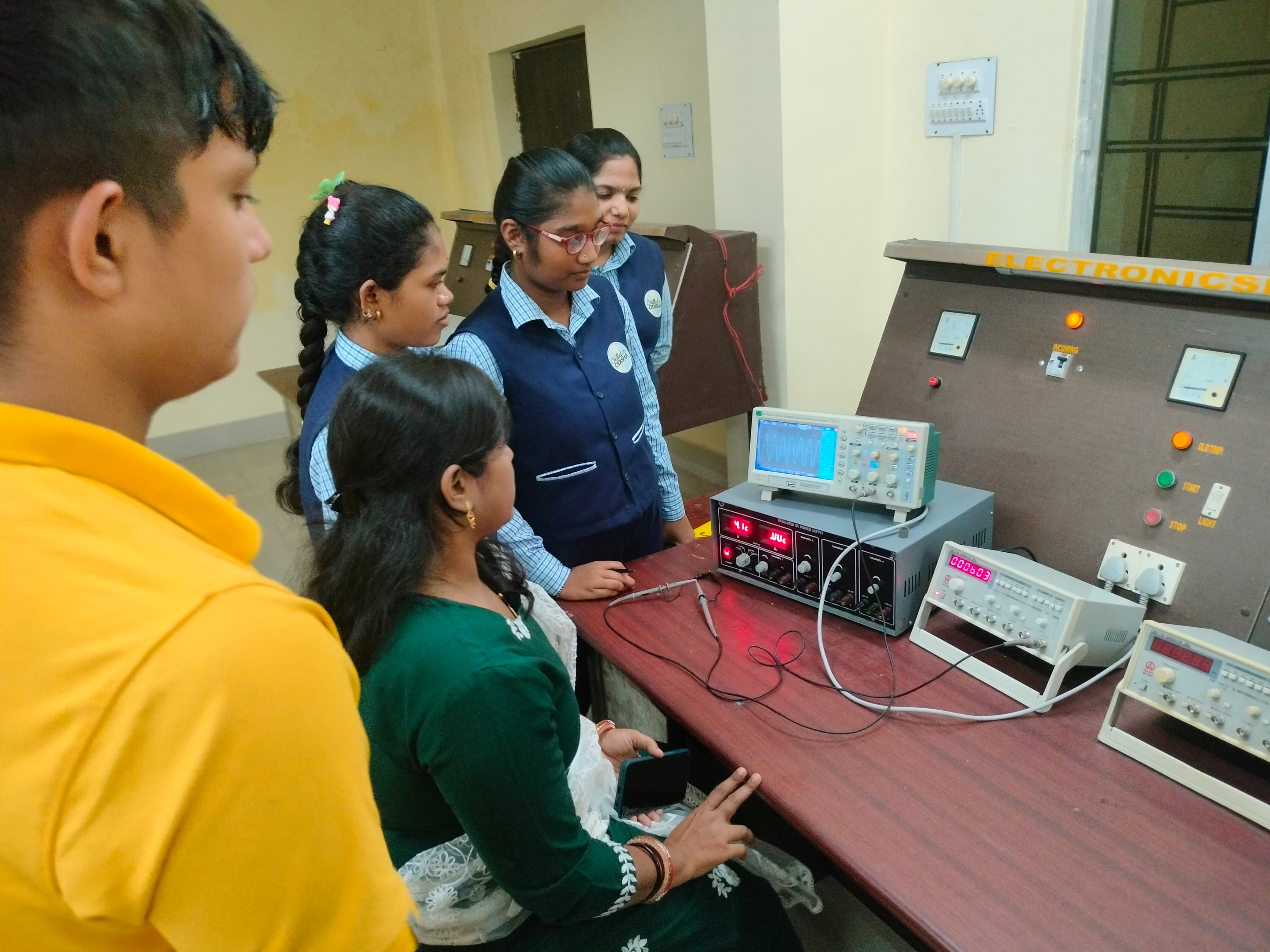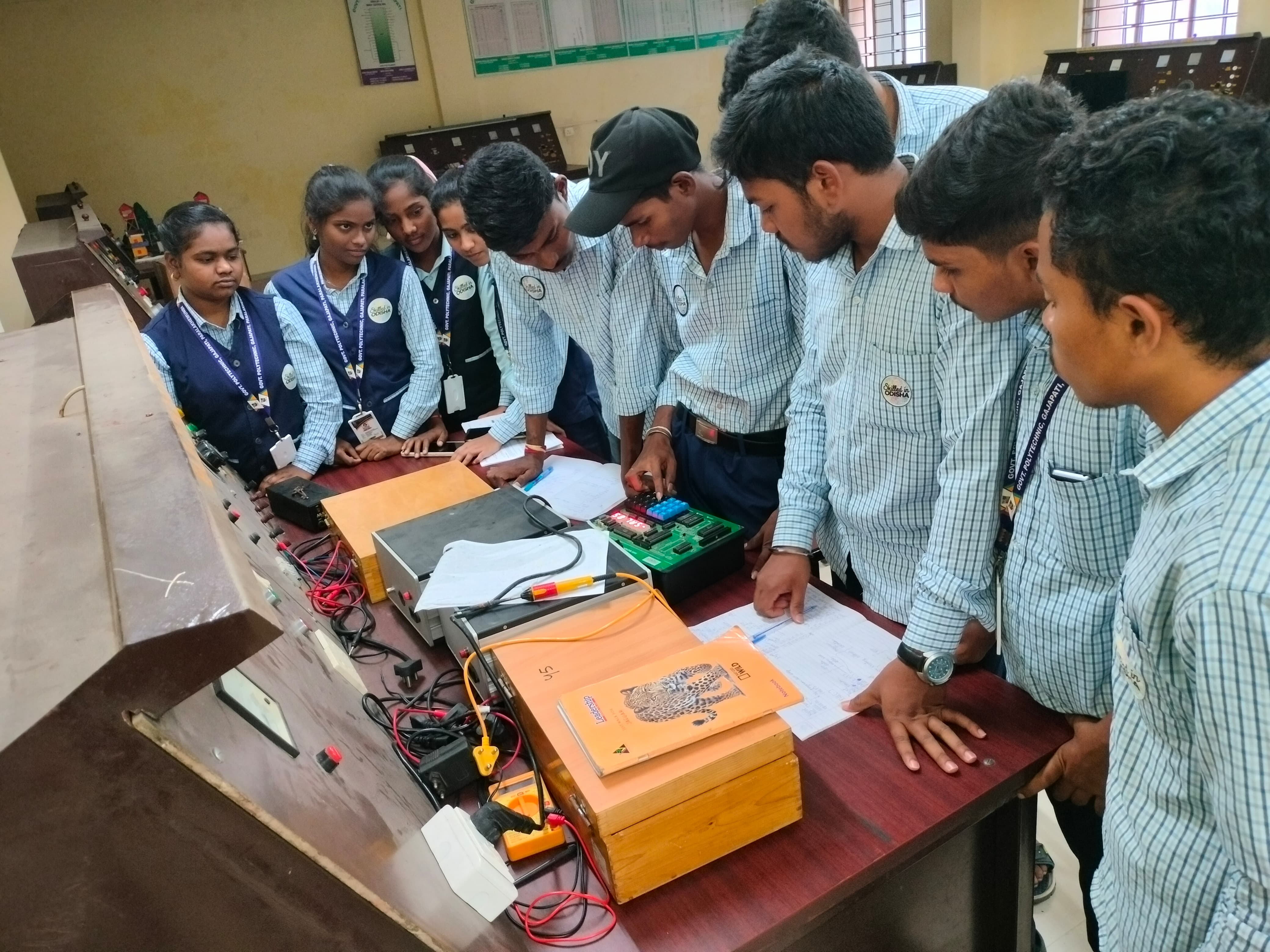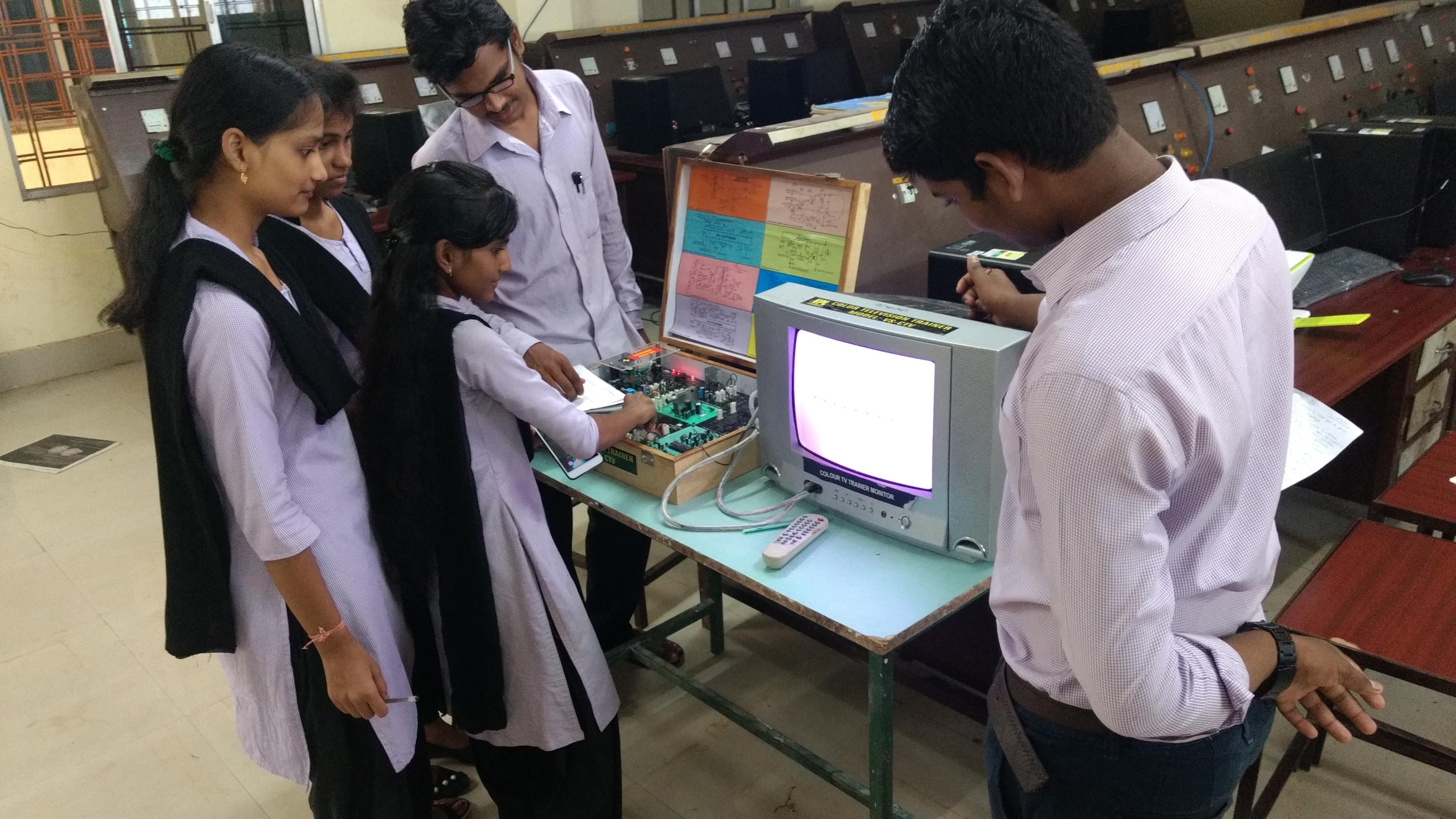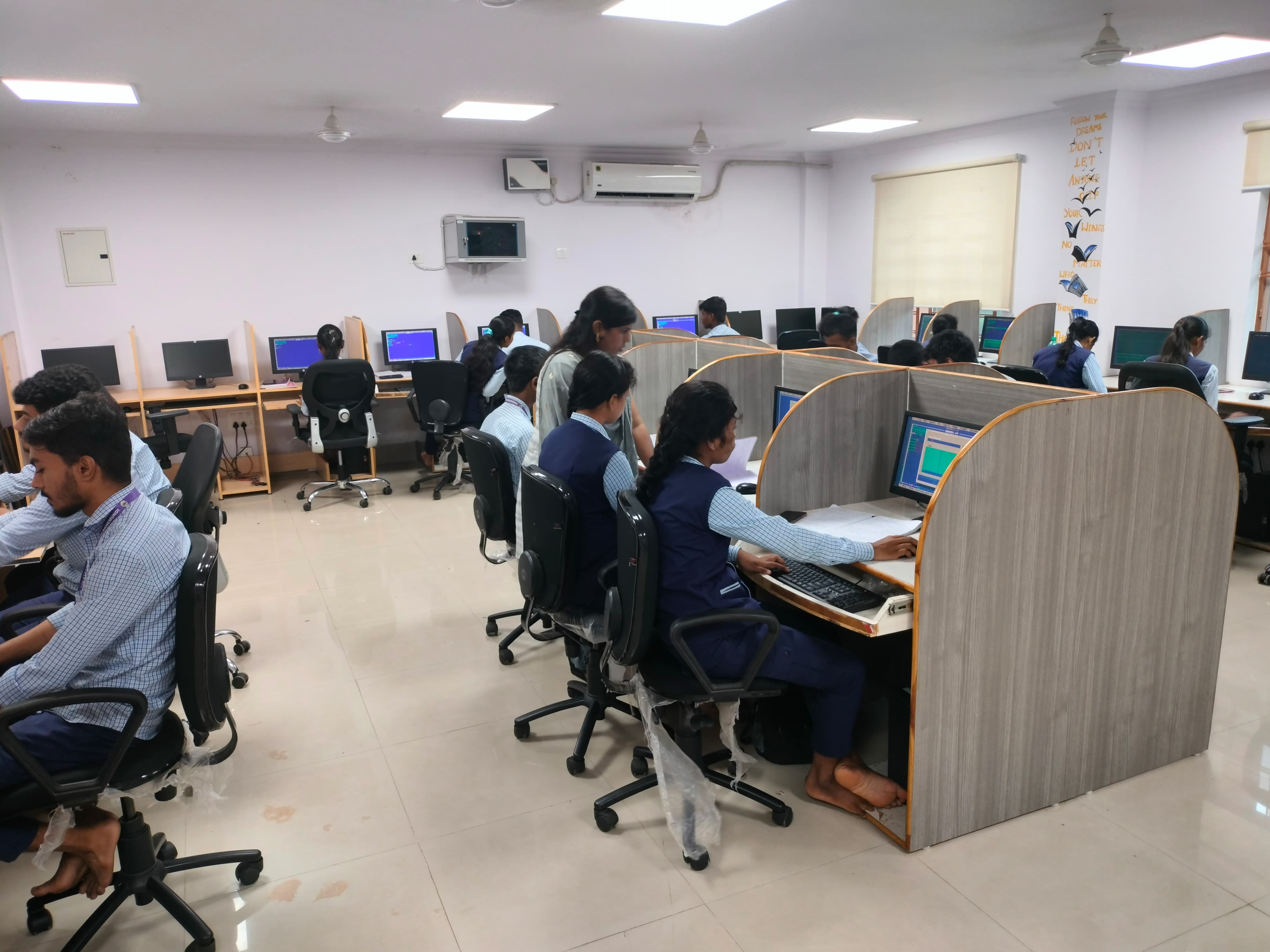The department strives to train and empower our students who will make the world a better place by making use of engineering principles, techniques, and systems. To that end, considerable initiatives have been taken to establish good laboratories in the areas of Electronics, Communication, Microwave, Digital Signal Processing, and VLSI design with required hardware and simulation software.
Here, the students are provided with greater exposure in the core areas of Electronics & Tele-Communication Engineering as compared to the students admitted in a similar program at other institutes of the state. The students are also encouraged to participate in the technical activities apart from the regular curriculum.
To be a Center of Excellence in Education and Research in Electronics and Tele- Communication Engineering in the service of society.
Engineering Diploma Graduates will be able to:
1. Engineering knowledge: Apply the knowledge of mathematics, science, engineering fundamentals and an engineering specialization to the solution of complex engineering problems.
2. Problem analysis: Identify, formulate, review research literature, and analyze complex engineering problems reaching substantiated conclusions using first principles of mathematics, natural sciences, and engineering sciences.
3. Design/development of solutions: Design solutions for complex engineering problems and design system components or processes that meet the specified needs with appropriate consideration for the public health and safety, and the cultural, societal, and environmental considerations.
4. Conduct investigations of complex problems: Use research-based knowledge and research methods including design of experiments, analysis and interpretation of data, and synthesis of the information to provide valid conclusions.
5. Modern tool usage: Create, select, and apply appropriate techniques, resources, and modern engineering and IT tools including prediction and modeling to complex engineering activities with an understanding of the limitations.
6. The engineer and society: Apply reasoning informed by the contextual knowledge to assess societal, health, safety, legal and cultural issues and the consequent responsibilities relevant to the professional engineering practice.
7. Environment and sustainability: Understand the impact of the professional engineering solutions in societal and environmental contexts, and demonstrate the knowledge of, and need for sustainable development.
8. Ethics: Apply ethical principles and commit to professional ethics and responsibilities and norms of the engineering practice.
9. Individual and team work: Function effectively as an individual, and as a member or leader in diverse teams, and in multidisciplinary settings.
10. Communication: Communicate effectively on complex engineering activities with the engineering community and with society at large, such as, being able to comprehend and write effective reports and design documentation, make effective presentations, and give and receive clear instructions.
11. Project management and finance: Demonstrate knowledge and understanding of the Engineering and management principles and apply these to one’s own work, as a member and leader in a team, to manage projects and in multidisciplinary environments.
12. Life-long learning: Recognize the need for, and have the preparation and ability to engage in independent and life-long learning in the broadest context of technological change.
1. Professional Skills: Apply the concepts off electronics and Tele-communication Engineering to solve problems in various areas like electronics, communication, signal processing, RF & microwave, VLSI, Embedded etc.
2. Problem Solving Skills: Solve complex electronics and communication engineering problems using hardware and software tools.
3. Skill Development: Apply verbal, reasoning, data interpretation, quantitative and communication skills to solve engineering problems.
| Sl. No | Semester | Link |
| 1 | Timetable of 3rd & 5th Semester, Winter Session 2024-25 | Download |
| Sl. No | Name | Link |
| 1 | 2nd Sem Fundamentals of Electrical & Electronics Engg. - Theory (Summer) 2026 | Download |
| 2 | 2nd Sem Fundamentals of Electrical & Electronics Engg. - Practical (Summer) 2026 | Download |
| 3 | Lesson Plan 4th Sem Summer-2026 | Download |
| 4 | Lesson Plan 5th Sem Summer-2026 | Download |
| 5 | Lesson Plan Summer-2026 | Download |
| 6 | Lesson Plan 5th Sem Summer-2026 | Download |
| 7 | Lesson Plan 6th Sem Lab Summer-2026 | Download |
This laboratory course completely deals with basics of analog electronic circuit design and their experimental observations. Here the students are exposed to design and implement the analog circuits like Clipping and Clamping circuits using diodes, Amplifiers using FET’s or BJT’s, verification of circuits, behavior of RL, RLC circuits, oscillators such as RC phase shift, Hartley, Colpitt’s and Crystal oscillators, full wave and half wave rectifier circuits, resonance circuits, etc..

The objective of this lab is to impart knowledge of the basic tools for the design of digital circuits such as different types of logic gates, identify their ICs and also verify their truth table, design and test combinational circuits ,sequential circuits and to provide methods and procedures.

In Analog , Digital & Advance Communication Engg. lab, there is a lot of scope for the students to study in detail about various types of Modulators and De-Modulators, Transceivers and Spectrum Analyzer along with the different types of Filters and their design and usage and also different types of Pulse Code Modulation (PCM) formats.

The objective of this lab is to process in which a model of electronics circuit is created and analyzed using various software algorithms, which predict and verify the behavior and performance of the circuit.
